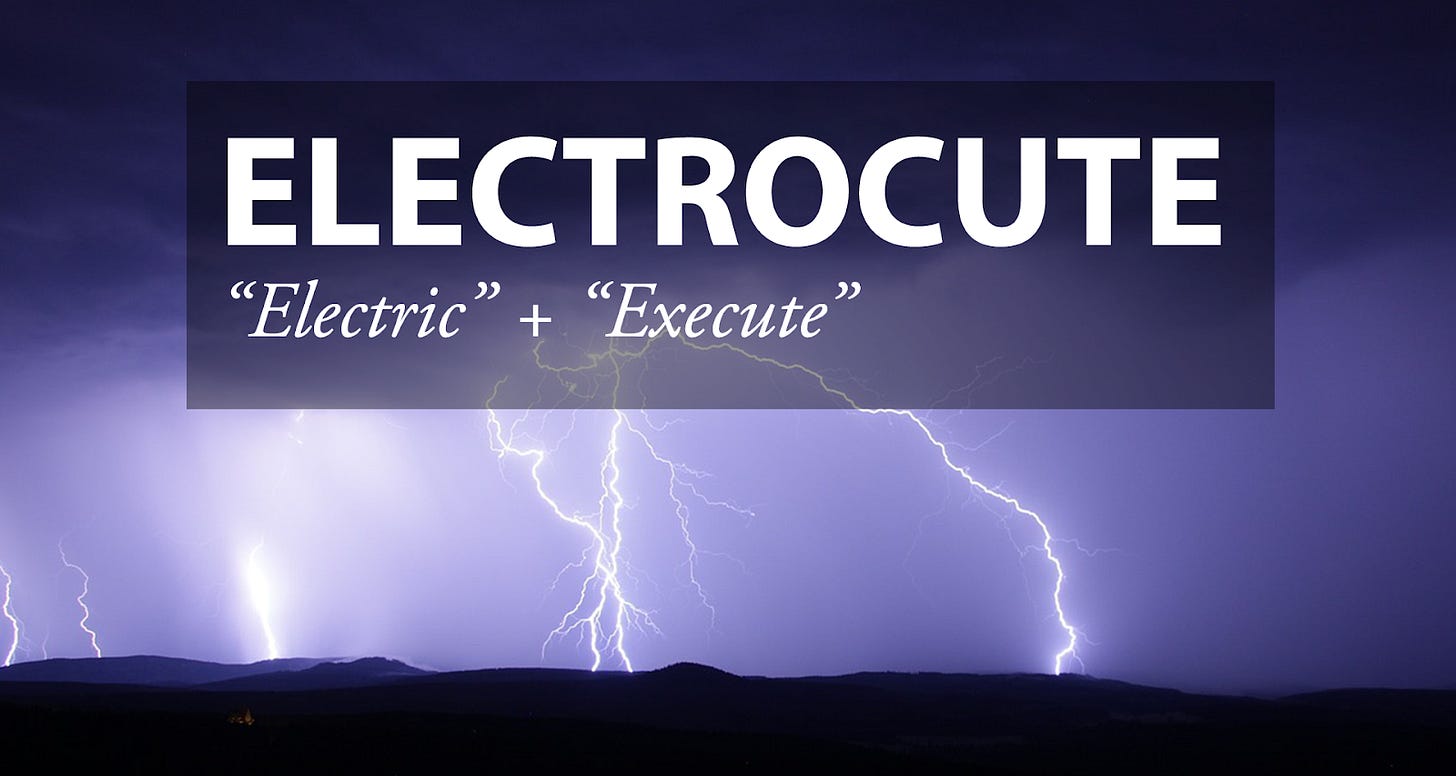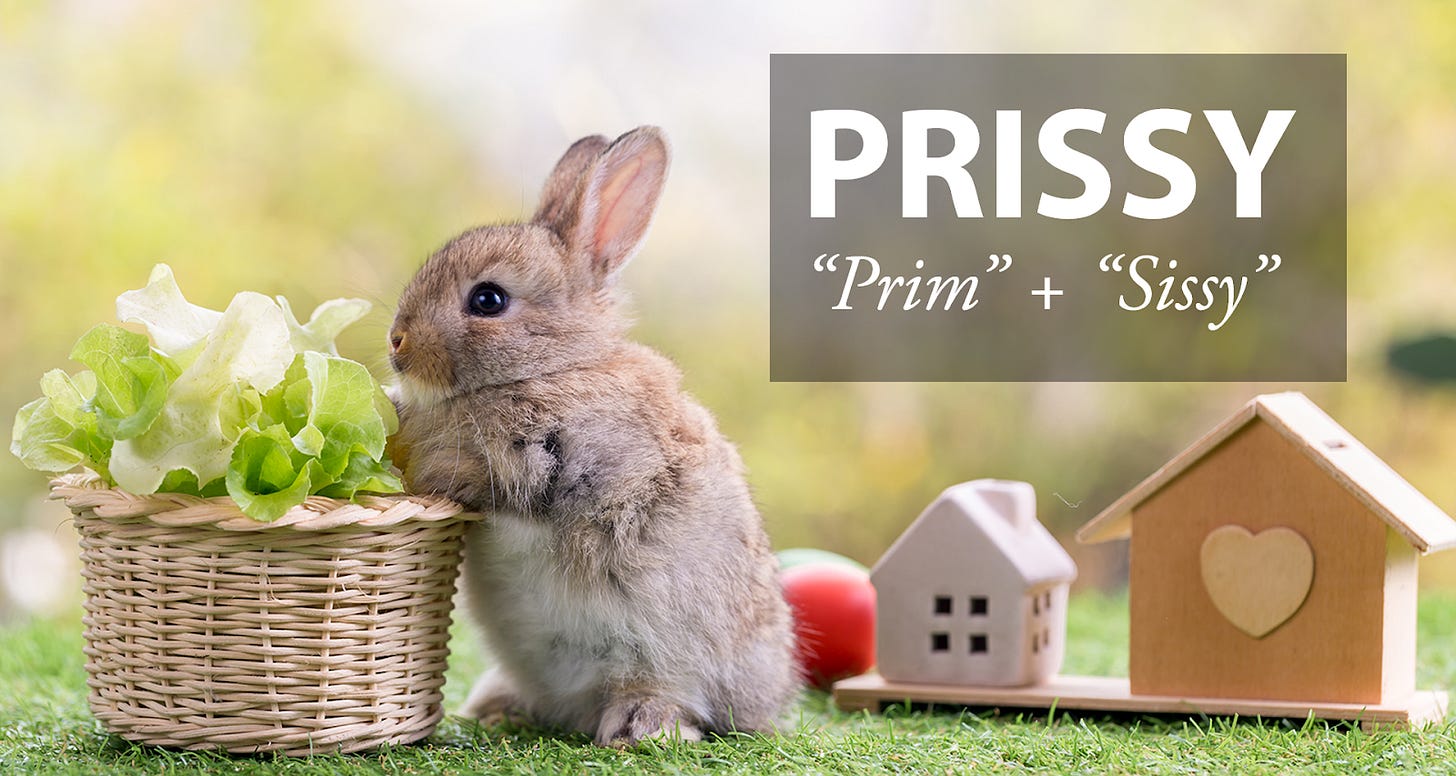7 Secret Portmanteaus That Have Been Hiding in Plain Sight
Some perfectly normal-seeming words that are actually two other words standing on top of each other in a trench coat.
Because there is no justice in the world, “portmanteau” does not quite qualify as a portmanteau (it’s just a garden variety compound), even though it is made up of two words. Borrowed into English in the mid-1500s, it was formed from the French words porte (carry) and manteau (cloak), and it did what it said on the tin, which is to say that it was a word for a bag that carried a cloak. By the 1850s, it had come to mean, more specifically, a suitcase with a hinge at the back to open into two equal halves, which is what Lewis Carroll was thinking about when he appropriated it for Humpty Dumpty to describe one word made from smushing together two others in Through the Looking Glass.
“Well, ‘slithy’ means ‘lithe and slimy.’ ‘Lithe’ is the same as ‘active.’ You see it’s like a portmanteau—there are two meanings packed up into one word.”
Portmanteaus (or portmanteaux, if you’re feeling ever so saucy, or “blend words,” if you’re decidedly not) are good clean fun — who doesn’t enjoy bromance, brunch, sexting, and alcopops (maybe not all at once)? But the most successful ones have been hiding among us for so long that we’ve lost track of their origin stories. Here are seven portmanteaux that have been hiding in plain sight.
Introduced in the U.S. in 1890 at the same time as the first use of the electric chair, “electrocute” originally only meant “electrical execution,” though it has since come to encompass a whole spectrum of electrical nastiness from lightning strikes to sticking a fork in the toaster.
“Stash” first appears in the 1790s, and there’s not a clear consensus about where it comes from, but the prevailing theory is that it is a combination of stow and cache or stick and cache. Jon Bee’s 1823 dictionary of “Sportsman’s Slang” (subtitle: “terms used in the affairs of the turf, the chase, and the cock-pit; with those of the bon-ton, and the varieties of life”) cites it in the phrase “Stash the glim,” meaning “put out the lights,” which is just an unbelievably cool thing to say to (presumably) the other scofflaws in your band of thieves.
Velcro is a proprietary name for the 1941 invention by Swiss engineer George de Mestral that dramatically improves on shoelaces until you become a grownup when it’s suddenly not allowed for some reason. It’s a portmanteau of the French words velours (velvet) and croché (hooked) and maybe if we’d just kept the much classier French version, we could have said goodbye to stupid old shoelaces forever. “Ooh la la! Are those new shoes of yours velours croché? How chic!”
The phrase “Picture element,” describing a little bit that makes up a picture, first appeared in Wireless World magazine in 1927, according to William Safire, but it doesn’t make the leap to the vastly cooler pixel until 1965, when it gets used to describe images from space probes.
If there’s a downside to the introduction of this genuinely nifty word, it’s that its adjectival form, “pixelated,” has eclipsed an earlier unrelated pix-e-lated (or pixilated), which meant “possessing a fey and whimsical affect, like a pixie.” This loss to the language is leavened a bit by the fun fact that in the computer world, pixels have adorable little friends called voxels (volume elements) and texels (texture elements).
The word “meld,” which came into the language in the ’30s, is probably a portmanteau of “melt” and “weld,” though there are some other theories about its origin. I’ll spare you those theories as they’re really only mildly interesting, especially when compared to the fact I learned, while I was trying to track them down, about Modern English’s 1982 hit “I Melt With You.” Here’s Modern English singer Robbie Grey, ruining a perfectly nice love song:
“The amount of times we get told people got married to our song, made love to that song for the first time … whatever, it's lovely. But literally the lyrics are about a couple making love as the atom bomb drops and sort of melting together.”
“Prissy” means “precise and overparticular,” or “affectedly prudish, especially in a manner considered feminine,” and its first written appearance in English is in a charming passage from a children’s book by Joel Chandler Harris called “Mr. Rabbit at Home.”
“Then Mrs Blue Hen rumpled up her feathers and got mad with herself, and went to setting. I reckon that's what you call it. I've heard some call it 'setting' and others 'sitting.' Once, when I was courting, I spoke of a sitting hen, but the young lady said I was too prissy for anything.”
"What is prissy?" asked Sweetest Susan.
Mr. Rabbit shut his eyes and scratched his ear. Then he shook his head slowly.
"It's nothing but a girl's word," remarked Mrs. Meadows by way of explanation. "It means that somebody's trying hard to show off."
The prevailing theory of its origin is as a blend word comprising “prim” and “sissy.” No one is totally sure where “prim” comes from (possibly an old French word meaning “delicate”), but “sissy” does come from “sis,” as in “sister,” which is, it ought to be said, exceedingly unfair to sisters.
Lewis Carroll, who is very much the hero of this particular story, is responsible for a number of wonderful portmanteaus that never escaped from his books — words like slithy (lithe + slimy), mimsy (flimsy + miserable), and frumious (fuming + furious). But — rather impressively — he also invented a number of blend words that have found permanent homes in the dictionary. This list includes galumph (gallop + triumphant), burble (bleat + murmur + warble), and chortle (chuckle + snort).
Chortle first makes an appearance at the end of Carroll’s Jabberwocky after the beast has been slain:
“And hast thou slain the Jabberwock?
Come to my arms, my beamish boy!
O frabjous day! Callooh! Callay!”
He chortled in his joy.
Frabjous, of course, is “fabulous” + “joyful,” and it never caught on, though it ought to have.












Thank you, Jack, for another frabjous roundup! I especially appreciate the Lewis Carroll references :-)
I so loved this post; I was chortling all the way to the microwave to warm up my coffee. Thank you!